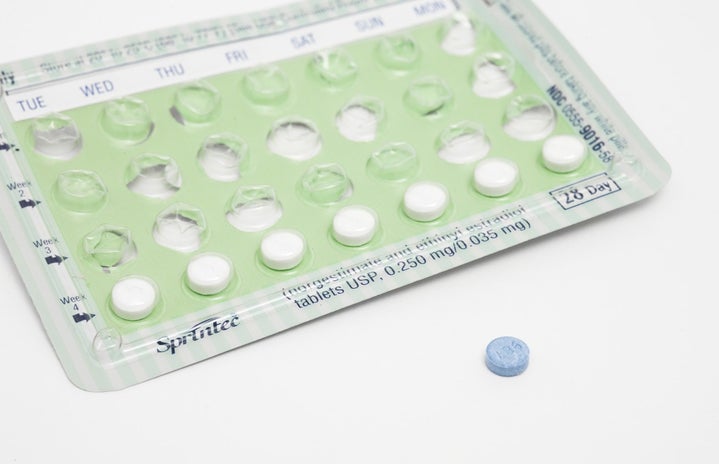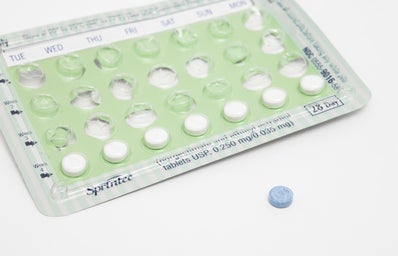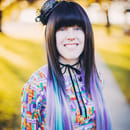Your first time can be confusing, exciting, scary and an emotional roller coaster. All of that still applies if you identify as an LGBTQ+ woman. Queer women may not necessarily deal with the same heteronormative stereotypes and expectations, but we still all have different feelings about our first time. Some queer woman experience their first time with a same sex partner, others with an opposite sex partner. We asked six queer women what their first time was like, what they loved and what they wish they could do over!
It may not be what you’re expecting
Your first time may not be what you thought it would be, and that’s okay. A lot of queer women, just like non-queer women, leave the experience feeling like they aren’t entirely happy with what went down.
“My first time was with an ex,” says Alicia*, a senior at UCLA who identifies as gay. “Looking back, I don’t think she cared about me as much as I cared about her. We’d also only been dating for a few weeks when it happened, and I kind of wish I’d waited longer.”
The first time can also carry a lot of expectations, and that can be hard to deal with. Olivia*, a sophomore at Smith College who identifies as biromantic and asexual, says, “I thought I had to have sex with my first college girlfriend because that’s what everyone does. This was before I came to terms with my asexuality, and came out. I think I felt like I needed to have sex because most of my friends were.”
You also become more comfortable talking to your sex partner(s) and having open lines of communication as time goes on. Olivia says, “My girlfriend at the time also seemed like she had expectations about sex—that I’d know more, that I’d want to do more, which I guess is because I wasn’t really out about my asexuality at the time, even to myself. Now, I can be upfront with my girlfriends beforehand so they know where things stand.”
Just because it’s not what you’re expecting doesn’t mean it wasn’t a good experience. Like anything else, you need to practice at sex—and all the communicating that goes into it—before you can improve. If your first time wasn’t what you expected, try to remember what you might think about next time, whether it’s being more forthright with a partner about your preferences, or trying something different during foreplay.
Related: 7 Queer Girl Dating Problems (& How to Deal)
Your sexuality or gender isn’t defined by the first time you had sex
A lot of queer-identifying women have sex before they come out, even to themselves, and that’s totally normal! Just because your first time was with a man and now you’re out as gay doesn’t make your identity invalid in any way!
Kristen*, a freshman at Wellesley College who identifies as a lesbian and genderqueer, says, “The first time I had sex, I was in high school and it was with my boyfriend at the time. I kind of knew I was a lesbian, but I had no idea what genderqueer meant, and I went for it anyway. For a while, I thought it meant I wasn’t a real lesbian, but I realized that’s just not true. It was a physical experience and a choice—not a part of who I am. Just because you try pizza and then realize later you’re never eating pizza again and don’t really like it doesn’t make you a pizza-lover for life just because you ate it once. So why should this define me?”
Similarly, if you now identify with a different gender identity since you had sex for the first time, if your first sexual partner called you by a name you no longer go by, or you’ve since come out as asexual—you’re still valid.
Alex*, a recent graduate of New York University who identifies as transgender, says that he wasn’t out and hadn’t socially transitioned when he had sex for the first time. “That used to bother me,” he says. “My partner and I are still together, and I couldn’t get the idea out of my head that our first time was before I changed my name and came out as trans. But, honestly, I was still me. I identified differently, but I was still in there, and a part of me knew I was trans. And I’m okay with that.”
Your identity isn’t tied to your sex life, your period and it certainly isn’t tied to your first time. You’re constantly exploring your body and your identity, and who you sleep with, how they identify and how you identified at the time aren’t things that have to follow you forever. If your first time was with a guy before you realized you were gay, that’s okay, and it’s also okay if you had sex before you transitioned or came out as asexual. Your actions have no impact on your identity, especially if you don’t want them to.
You shouldn’t necessarily believe the myths
Whether you went into it thinking that your virginity was the be-all, end-all, or had myths about queer sex or queer bodies on your mind, you probably left the experience realizing how untrue many of these stereotypes are. You may have been worried about things like “How do queer women even have sex?” or the idea that many same-sex female couples jump into serious committments, or you could’ve stressed out that you’d experience lesbian bed death down the road with your sex partner. You may not have known if you’d need sex toys before having sex for the first time. Since the media tends to perpetuate myths like these, and sex education isn’t always comprehensive or inclusive (if you had any at all!), it’s pretty common to have nothing but stereotypes and vague ideas to go off of.
“I was just a little nervous because I didn’t exactly know how to have sex,” says Sarah*, a senior at Emerson, “and there are so many myths with lesbian sex I thought I would have to do some pretty dramatic maneuvering.” She says she thought “that lesbians either only finger, give oral or scissor.” After having sex for the first time, Sarah says, “I realized that this wasn’t the case at all and that there are different ways to have sex.”
Similarly, you may have felt like your virginity was an important institution to uphold. Caroline*, a freshman at Boston College, says, “I thought losing my virginity would be a big deal. That it would change everything about my life, even though my first time was with a girl and not a guy. After it happened, it was just like, ‘Okay, what do you want to do now?’ It didn’t really change anything.”
Myths and stereotypes about virginity are pervasive, and they don’t only affect cisgender, heterosexual couples—they affect LGBTQ+ people, too, in addition to all the queer-specific myths that are rampant.
The truth is, sex is different for everybody, whether it’s your first time or not. It’s not something that can be summed up in a few easy stereotypical sentences. There are a lot of myths about what’s okay and what’s acceptable and expected for your first time, but they’re just that—myths.
*Names have been changed


